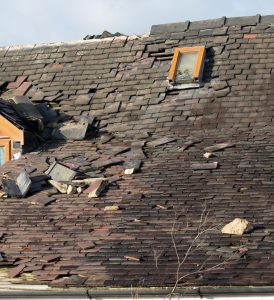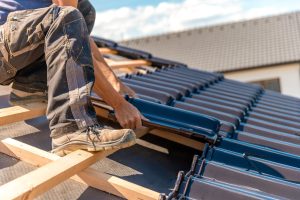Your roof is the primary defense against the elements, safeguarding your home and loved ones from rain, wind, snow, and harsh sunlight. Over time, weather conditions can take a toll on your roof’s integrity, leading to various issues that may require emergency repairs.
In this blog post, we’ll explore how different weather elements impact your roof and what you can do to protect it from potential damage.
Rain and Water Damage
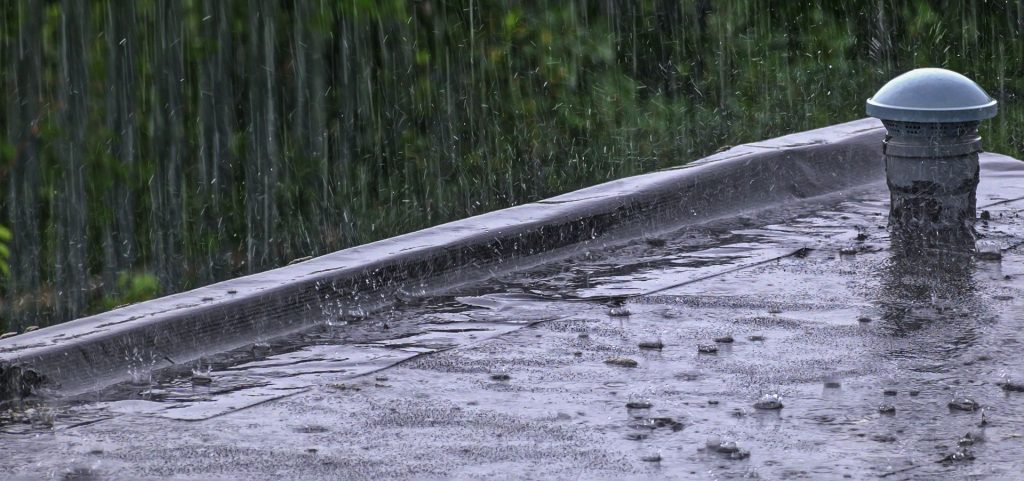
Rain is a common weather element that affects your roof. It can infiltrate small gaps or cracks in the roofing material, leading to water damage inside your home. Over time, this can weaken the roof’s structure and promote mold growth, compromising the indoor air quality. Regular roof inspections can help identify and fix minor issues before they escalate.
To protect your roof from rain damage, ensure proper drainage by keeping gutters and downspouts clean and functional. Consider installing a waterproof membrane beneath the roofing material during repairs or renovations to provide an extra layer of protection.
Wind and Its Effects
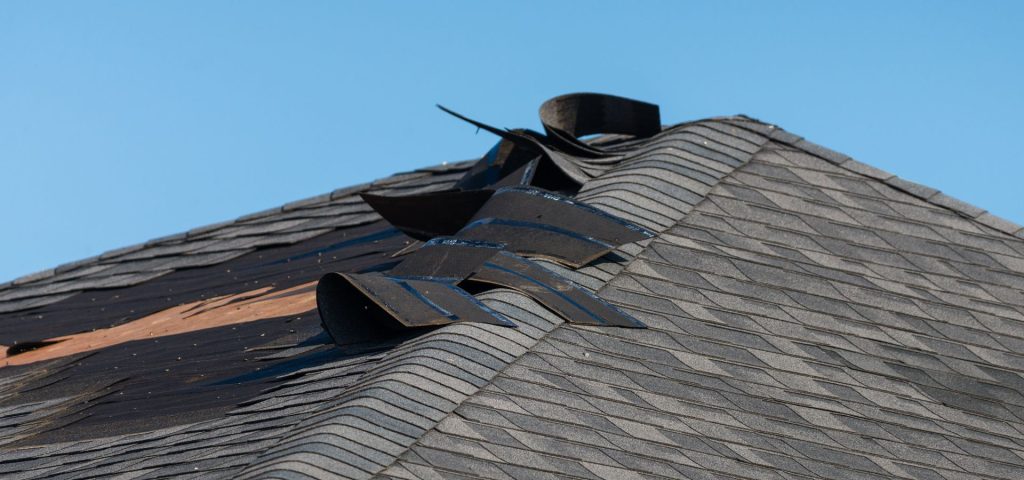
Strong winds can lift and displace roofing materials, especially if they are already loose or damaged. Shingles may be torn off or curl up at the edges, exposing your roof to potential water infiltration. Regularly inspect your roof for any loose or missing shingles and have them repaired promptly to avoid more extensive damage during the next storm.
If you live in an area prone to hurricanes or severe storms, consider investing in impact-resistant roofing materials to provide added protection against high winds and flying debris.
Snow and Ice
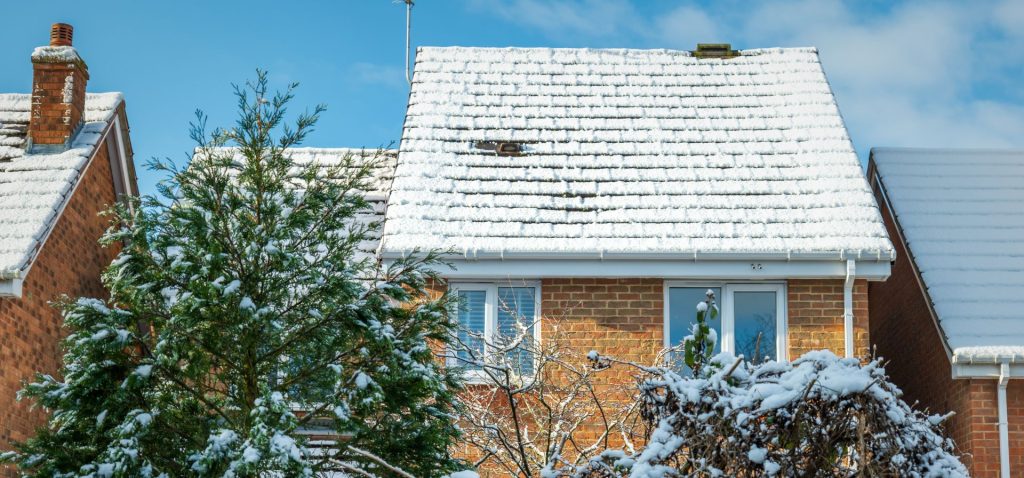
Snow and ice accumulation can lead to roof damage, especially in regions with harsh winters. The weight of heavy snow can stress the roof structure, potentially causing it to collapse. Ice dams, which form along the roof’s edge, prevent proper drainage, leading to water seepage under shingles.
To prevent snow-related roof issues, ensure your attic is adequately insulated to prevent heat from escaping and forming ice dams. Additionally, using a roof rake to remove excess snow can help reduce the load on your roof during winter.
Sunlight and Heat
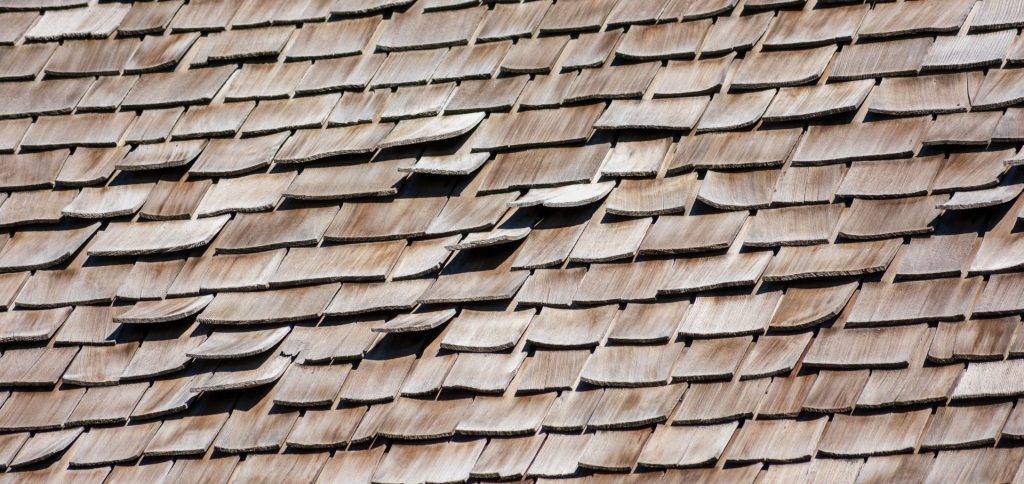
While sunny weather might not seem harmful, prolonged exposure to UV rays and extreme heat can cause roof materials to deteriorate over time. Asphalt shingles, for instance, can become brittle and crack, leaving your roof vulnerable to water infiltration during rainy seasons.
Regular maintenance, including roof coating and applying UV protectants, can help prolong your roof’s lifespan and minimise the effects of sunlight and heat.
Hailstorms and Impact Damage
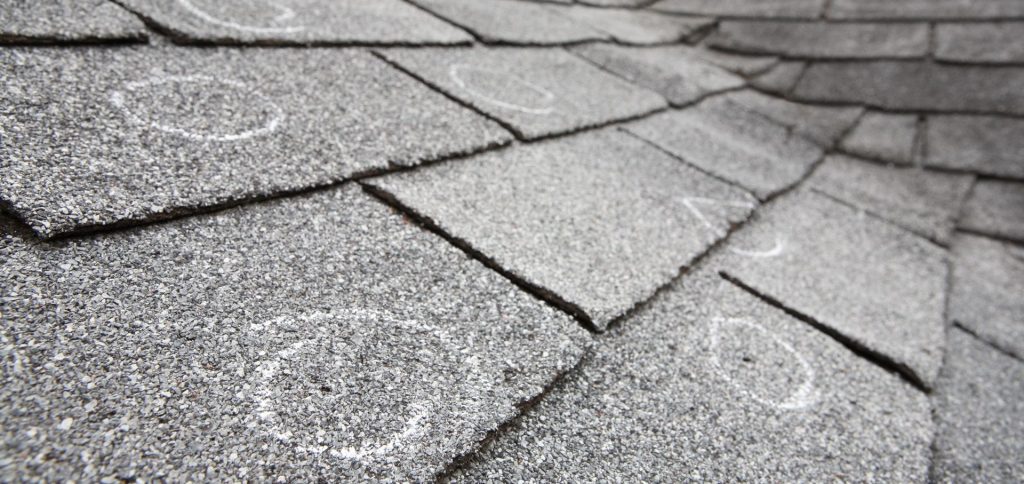
Hailstorms can wreak havoc on your roof, causing dents, cracks, and even punctures in various roofing materials. After a hailstorm, it’s crucial to conduct a thorough roof inspection to identify any damage that may not be immediately visible. Addressing hail damage promptly can prevent leaks and further deterioration.
Conclusion
Your roof is a vital component of your home, protecting you and your belongings from the whims of weather. Understanding how different weather elements impact your roof can help you take proactive measures to maintain its integrity and prolong its lifespan. Regular inspections, prompt repairs, and investing in quality roofing materials are all essential steps in safeguarding your roof against the elements.
If you ever encounter significant weather-related damage to your roof, don’t hesitate to seek the assistance of roofing experts like Acorn Roofing. Their expertise in roof repairs, new roofing and emergency roof repairs can ensure that your roof remains strong and resilient for years to come.
Contact our expert roofing team today, and ensure that your roof is going to keep you dry, all year round.

